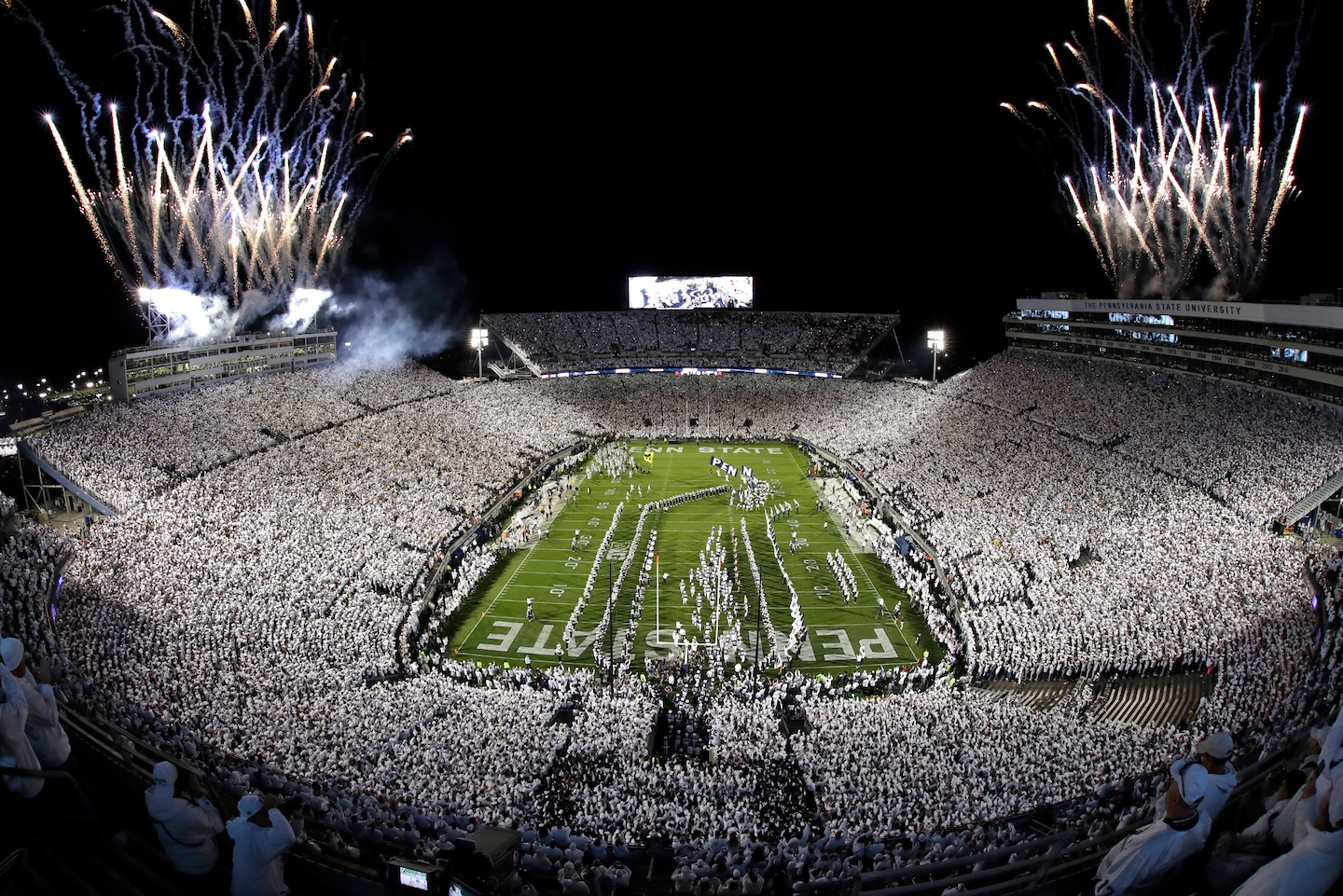College football’s con has been laid bare by the coronavirus crisis

That’s because honest maintenance has been neglected for a while. Some can jump on lifeboats and get out early. Some can play their music louder and enjoy themselves for as long as possible. But this thing is going to submerge, by the force of the relentless novel coronavirus or by the will of enlightened players and others who have turned crisis into clarity about a system of exploitation.
Looking at the sport in this light, there is so much wrong that it’s impossible to find right. It’s easy to laugh at the loose medical interpretations and petty scheduling concerns of schools that have chosen to bait danger and continue playing. But for the Division I FBS schools that have decided to sit out — the Big Ten, Pac-12, Mid-American Conference, Mountain West and select independents — there is no absolution in their caution. The decisions of the Big Ten and Pac-12 actually indicate they understand this wretched game quite well and will use shrewd authority in protecting it.
The words of Ray Anderson, the athletic director at Arizona State, come to mind. When asked why players signing liability waivers wasn’t a consideration, Anderson articulated the responsibility of a college administrator with sermon-like charm. If he weren’t representing the interests of some tone-deaf thing called the Pac-12 CEO Group, it would’ve felt like an inspiring speech to set to music. Instead, his comments portrayed hypocrisy in its highest form: a charismatic pinch of morality that doesn’t last long enough to apply to anything else.
“It’s not an option because our responsibilities are not about liability,” Anderson said. “Our responsibilities are about accountability to these student-athletes and their families, short and long-term. So we can’t waive our duties and obligations to protect them driven by the science and the medicine. We’re not driven by lawyers who say, ‘Well, we’ll relieve you of liability.’ That’s not what floats the boat in this conference.
“We have responsibility to accountability, so the science and medicine says we cannot allow you to go forward right now, so we won’t. I hear there’s talk about, ‘We’ll sign a waiver. We want to play so badly.’ Coaches talking about, ‘We’ve got to play.’ Well, we don’t have to play until it’s safe and we can literally guarantee the health and safety of our student-athletes; not just now but their lives going forward, because we don’t know the impacts going forward. And until we have more clarity, we’re not going to go forward. That’s where we are. So the liability thing: Other folks can talk about that. We’re about accountability and responsibility to our student-athletes.”
It felt like a “Hallelujah!” moment, but that feeling evaporated quickly. In the context of what college football really is — a multibillion-dollar enterprise profiting from free and silenced labor — any references to accountability, responsibility and authentic leadership ring hollow. They’re just fancy words to preserve the amateurism con.
Players in the Big Ten and Pac-12, enlightened and emboldened by all that has happened, called out their conferences, started to organize resistance and made demands. They weaponized the truth: To play sports right now exposes the television money grab more clearly than ever. Major college athletics have resisted frank admission of what it really is. It hides behind education, always. To continue as normal, in any of its reaches, it reveals itself as an enterprise such as the NBA, NFL, NFL and MLB. The con can’t allow that. So it was a perfect time for college players to challenge their conferences on a multitude of issues.
And how did the Big Ten and Pac-12 respond? They sat down, preaching responsibilities, putting their paternalism on full display. It was forced leadership. And it was a cunning reaction. Athletes had boxed them in; the CEOs fronting as college presidents had to play dirty or not play at all. So they kept on the mask of amateurism.
The rest of college football has more daredevil in it. And more shortsightedness. And less self-awareness.
Pete Thamel of Yahoo Sports offered an anecdote that explains so much about this strangely irresistible, morally inadequate sport. On Thursday, the SEC coaches got into a little verbal spat on a conference call. The trigger of this frustration? The league’s struggles to determine how its two additional league opponents would be selected for its revised 10-game, conference-only schedule.
Two of the sport’s most prestigious conferences just opted out on the advice of their medical advisers, fearing covid-19’s link to the heart condition myocarditis. And SEC coaches are flustered because they need to know — right now — whether they get Arkansas and Mississippi State or Alabama and LSU as the mystery teams on a schedule that still qualifies, despite their insistence on playing, as more of a suggestion than a stone-cold reality.
This is why they make the big bucks — and most don’t offer to take pay cuts to help their struggling athletic departments.
With the nation still struggling to contain the novel coronavirus, with schools reopening in some communities and autumn on the horizon, it figures to get increasingly difficult for colleges to play football and other sports this fall. But go ahead and argue about scheduling.
“I feel like the Titanic. We have hit the iceberg, and we’re trying to make decisions of what time should we have the band play,” said Carlos del Rio, a doctor who studies infection diseases, during a media briefing hosted by the Infectious Diseases Society of America and some of the NCAA’s medical advisers.
At some point, the divided leaders of college athletics will realize they need new logic and a united front to combat an unprecedented, complex situation. Sadly, they figure to wait until after the boat sinks.
Read more:






